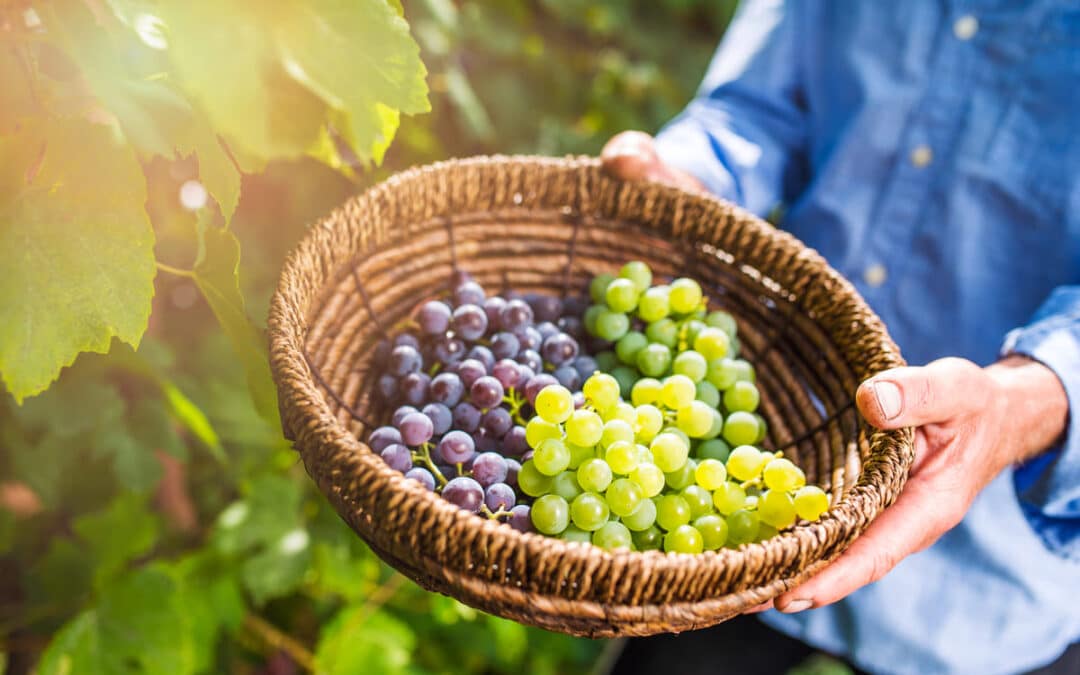Not surprisingly we often get questions about the origins of the grapes we use. Many of these questions we can answer off the top of our heads: Where is Cabernet Sauvignon originally from? Do they grow Pinot Noir in Burgundy? And so forth…
However, once in a while we get a question that sends us scrambling for answers. The most definitive reference on wine grapes is a hefty tome called, appropriately enough, Wine Grapes by Jancis Robinson, Julia Harding, and José Vouillamoz (as a point of local pride, Dr. Vouillamoz had connections to UC Davis). Published by Ecco, an imprint of Harper Collins, this 1,242 page beauty is exhaustive. For those of us who are wine nerds, it is also a dangerous rabbit hole, capable of drawing us in for hours at a time. Wine Grapes is well-annotated, further increasing the danger of absorbing the time of a diligent wine nerd.
Often while pursuing the story of this or that grape variety, certain names pop up repeatedly. One of those, that of the Roman polymath Pliny the Elder, is of particular interest to those of us who also are fans of craft beer. Who was this Pliny the Elder who is mentioned with reverence by wine and beer fans alike?
A little digging into the life of Pliny (actual name: Gaius Plinius Secundus) reveals a life of scholarship and adventure in a tumultuous era). Pliny was born in either AD 23 or 24 in what is now Como in northern Italy to a family of the Equestrian rank (the Roman equivalent to minor nobility). He had a keen early interest in Roman literature and befriended several men of letters in the hierarchy of the Roman army.
Pliny had a distinguished military career, serving mostly in Germania (what is now Germany), having experiences that informed his later work on the History of the German Wars (a work that has, unfortunately been lost. All we know of it is from its citation by later historians). When he retired from the legions, the notorious Nero was emperor, so Pliny wisely kept a low profile, realizing that friendship with such a volatile person was more of a liability than an asset. As Nero descended deeper into madness, Pliny stuck to the practice of law and wrote mostly of rhetoric and politically neutral topics.
Eventually Vespasian became emperor and Pliny’s star rose tremendously. Vespasian trusted Pliny absolutely and awarded him important offices in the empire. As he travelled the Roman empire, Pliny exercised his keen curiosity in observing the natural world, from the geology of gold mines in Iberia to the practices of viticulture in southeastern France. His observations and writings came together in his magnum opus, Naturalis Historia, a 37 volume work that is often considered the first encyclopedia.
While Pliny’s vast intellect explored countless subjects, fermented beverages were of special interest. Pliny was keen on tracing the qualities of various wines to the land the grapes were grown on, giving us one of the first explanations of the concept of terroir. He also is an invaluable source for learning about the ancient understanding of the origin of various wine grapes. Not only was Pliny endlessly curious, he was a diligent scholar in an era when citing sources was rare. Even so, modern readers must take Pliny’s grape origin stories cum grana salis (with a grain of salt). Pliny was a meticulous scholar for his time, but standards of scholarly rigor have certainly developed in the last 2000 years, and he had to rely on sources that were not up to his own level.
As for the beer connection, Pliny the Elder (or one of his friends) was the first to describe the hop plant by the botanical name Lupus salictarius (since renamed Humulus lupulus), giving him a place in the history of beer as well as of wine. For this reason the Russian River Brewing Company honored Pliny the Elder by naming their legendary double IPA after him.
Pliny the Elder died at the relatively young age of 55 during the eruption of Mt. Vesuvius in AD 79. He had been appointed praefectus classis in the Roman Navy and was stationed at Misenum on the Bay of Naples. After receiving a message from a friend telling him of survivors of the eruption stranded at Stabiae, Pliny boarded one of the galleys he had dispatched on the rescue mission. As they approached the port city of Herculaneum, ash and pumice started falling on the ship. The helmsman advised turning around, to which Pliny, quoting a famous Roman proverb, replied, “Fortune favors the brave. Head for Pomponianus.” The party reached Senator Pomponianus, but became stranded by the winds that had brought them there (Roman galleys were not very good at tacking) . Finally, worried that the houses they took shelter in were going to collapse, they fled and were engulfed in a plume of hot toxic gases from the volcano. Pliny, who was rather rotund and suffered from respiratory issues, was left behind. Three days later, after the plume dissipated, the crew returned to find Pliny dead.
The only work of Pliny’s that we still have is the Naturalis Historia. His other histories and biographies have been lost over the centuries. We know of them only from citations from later writers who still had access to them. What we know about Pliny the Elder’s life we have received from his nephew, Pliny the Younger, who also had the family talent for writing and rhetoric. Pliny the Younger, like his uncle, was thorough in his research, interviewing survivors from the rescue mission to Stabiae to reconstruct the narrative of Pliny the Elder’s final days. The picture we get of Pliny the Elder from his Natural History and from his nephew’s writings reveal a giant of a scholar.
Fortunately for those of us interested in wine, this giant spent considerable time and energy on laying the foundations for modern wine scholarship. So, let’s recline on our Roman dining sofa and raise a bowl of fine Falernian wine to Pliny the Elder!

